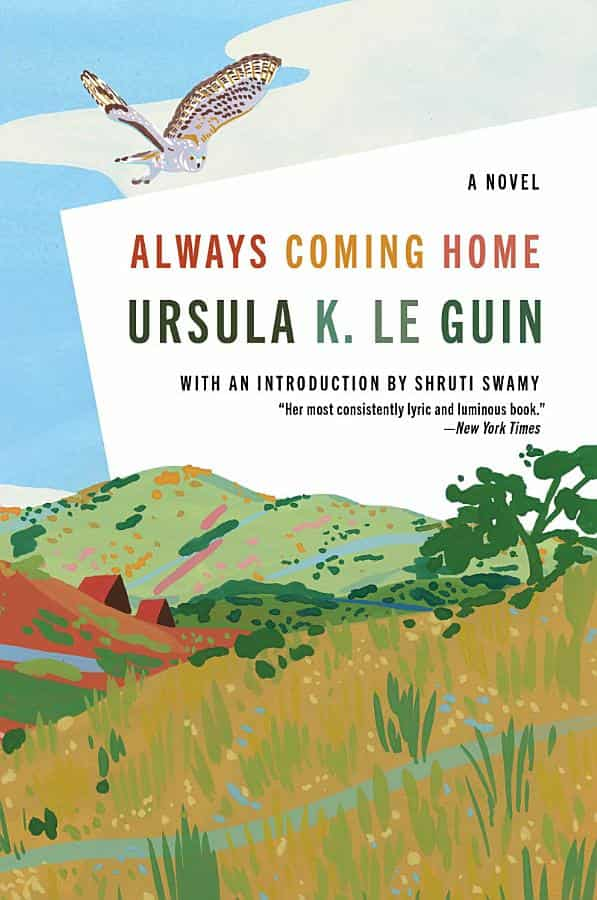I’ve been saving this one because the Carrier Bag Theory of Fiction has been such a foundational text for me, and this is where Ursula, more than ever, puts that theory to practice.
As Shruti Swamy says in the introduction, what is on offer here is a profoundly different way of looking, seeing, even thinking.
What I’m saying is that there is great fun to be had here, Ursula is having it, she is running wild as the oats through the Valley of her novel, hooting with delight. She’s willing to argue with the novel as much as we are, ready to poke holes in the perfection of this utopia—the idea of utopia at all—to allow in stinging insects and menstrual blood, men and boys who want to make war, girls who are restless with the sameness of Valley life, and grandmothers wrapped up in insane blood feuds. And don’t even get me started on the amazing audacity of creating a cassette tape of Kesh folk songs to go along with the first edition. I marvel, revel in this, the utter luxuriousness of watching a writer say yes to herself—the discipline she has to allow herself such freedom.
I plan to take my time, reading slowly all month (all year?). Expect a travelogue of sorts to follow.
Ursula’s foreward, so fitting considering she did also translate the Tao te Ching:
The difficulty of translation from a language that doesn’t yet exist is considerable, but there’s no need to exaggerate it. The past, after all, can be quite as obscure as the future. The ancient Chinese book called Tao teh ching has been translated into English dozens of times, and indeed the Chinese have to keep retranslating it into Chinese at every cycle of Cathay, but no translation can give us the book that Lao Tze (who may not have existed) wrote. All we have is the Tao teh ching that is here, now. And so with translations from a literature of the (or a) future. The fact that it hasn’t yet been written, the mere absence of a text to translate, doesn’t make all that much difference. What was and what may be lie, like children whose faces we cannot see, in the arms of silence. All we ever have is here, now.
